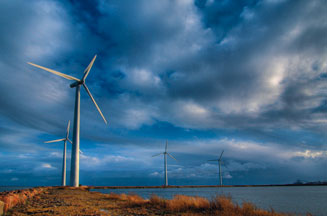
Figures provided exclusively to Marketing by the Advertising Standards Authority (ASA) reveal that 158 ads referencing the environment have attracted complaints so far this year, compared with 264 for the whole of 2008.
Guy Parker, chief executive of the ASA, says of the drop that he is ‘pretty confident that the work we have done has played a significant part'.
He attributes the decline in part to the ‘killer' publicity that results when ASA adjudications uphold complaints. ‘The point of making an environmental claim is to promote your social responsibility,' he says. ‘If the ASA comes down against you, you end up with the opposite of what you intended.'
Oil company Shell, for example, was censured by the ASA in 2007 for implying that it used a significant amount of waste CO2 to grow flowers, when less than 1% was used in this way. It has subsequently found it difficult to shake off accusations of greenwashing from consumers and lobbying groups.
The ASA has also held seminars and advice sessions on the environment that have contributed to marketers' understanding of the rules governing this way to build equity in a brand.
Ian Twinn, public affairs director at ISBA, says: ‘Advertisers are now more aware of the issues, which could be why the figures are down. While they had no intention to greenwash, they were not specific enough when making claims.'
He predicts that a code being drawn up by the Department for Environment, Food and Rural Affairs, due next year, will bring clarity to the area.
However, Twinn also speculates that the decrease in gripes may be because brands have dropped green messaging as a result of the recession or the theme simply falling out of fashion.
Despite the fall in the number of green ads attracting complaints, 2009 is, however, already a record year for the number of environmentally-themed complaints to the ASA. This anomaly is down to the Department of Energy and Climate Change's hard-hitting ‘Act on CO2' campaign, ‘Bedtime stories'.
The ad, by Abbott Mead Vickers BBDO, which depicts a doomsday-like outcome if climate change is not tackled, has attracted more than 700 complaints. However, before the ad broke last month, more than 100 fewer complaints about green issues had been received year on year.
Whether the recession, fashion or a more cautious approach by advertisers is driving the downward trend, brands are realising that their reputations can be damaged if their ads break the rules. This, plus the revision of the green claims code, mean the number of transgressions is bound to fall yet further.
Expert view: Why sustainability pays
Robert Tansey, Brand marketing director, Sky
There was a time when customers just wanted to trust you to deliver great-value products, backed by great service. Today, they expect all that and more, and are choosing to place their trust - and their hard-earned money - with brands that take positive action on the issues they really care about.
We believe this trend is set to gather pace over time, so for companies looking to build durable value over the long term, there is a commercial opportunity - and conversely, for those who choose to ignore the trend, a risk.
It's why, in addition to doing the right thing by our customers, suppliers and employees, we have chosen to make a wider contribution. As part of this, we have launched a set of measures to help tackle climate change and further reduce our own impact.
We have been taking action on the environment for about six years. I've lost count of the number of people in that time who have asked why a company like ours with a relatively small carbon footprint, would pitch into the climate-change fight.
It's actually very logical. As a media company with customers in one in three homes across the UK and Ireland, we can reach the places others can't. Through our on-screen and online content offering and the thousands of conversations we have with customers every day, we have an opportunity to make our voice heard, to engage with people and encourage positive change.
While we have made big strides reducing our own impact, we have not yet used the full potential of that reach, perhaps because we did not have a large-scale project to give us focus. To rectify this, we have launched Sky Rainforest Rescue, a three-year partnership with WWF to help save 1bn trees in Brazil's Amazon rainforest.
For the first time, we will be using all our media assets in concert to inspire consumers to join in, come together and make a difference by donating to the campaign - donations we will match. We will also help them find out about and understand the drivers of deforestation - often our own consumption patterns in the West.
Our projects help address critical issues in our society today, but the commercial benefit is also clear: leadership on the issues that count earns consumers' trust and loyalty. Fail to act on that, and your business will count the cost.


